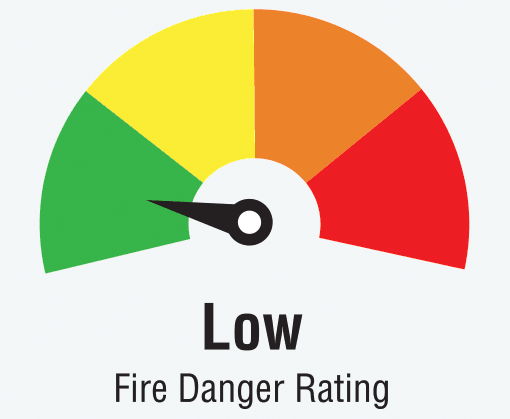
The “Whistler Sessions” Scenarios are stories about what could happen in Whistler’s future, from 2022 to 2050.
Whistler faces uncertain times for which there is no pre-existing roadmap to guide the way. In an uncertain future, scenarios help build shared capacity to talk together about how things could unfold. Thinking about the future together can help people collaborate to create the future they want.
The scenarios are not predictions about what will happen (forecasts) or what should happen (a vision).
Rather, the scenarios hypothesize different ways the future could unfold for Whistler’s communities, economy, environment, and culture.
The four scenarios are meant to be a catalyst for discussion and asks the question; how could our shared future unfold? And how do we improve Whistler’s future through more resilient and collaborative strategies?

In this scenario, we see ever-increasing pressures for growth and densification lead Whistler to urbanize, regionally integrate, and diversify both economically and demographically.

In this scenario, we are faced with increasingly stretched capacity and the urgent need to become more resilient to the earlier-than-anticipated effects of climate change, innovation becomes a dominant driving force in decision making throughout Whistler.

In this scenario, tourism demand grows, pressure on affordable housing increases, and Whistler’s government manages its growth strictly.

In this scenario, global climate and financial crises converge to devastate economies both internationally and in Canada. Whistler’s recovery from the COVID-19 pandemic is unstable, wildfires inflict massive damage to its infrastructure, and snowfall declines faster than anticipated due to climate change.
Read the full Whistler Sessions Scenario booklet below:
I’ve read the Whistler Sessions Scenarios booklet. Now what?
This is where the interesting work starts! You can use these scenarios as a means for personal reflection or they can be shared and contemplated with your friends, family and networks. Below are some reflections questions to get you started:
- What feelings does each scenario evoke in me?
- What excites me?
- What worries me?
- What do I see now that I didn’t see before?
- Are there themes in the scenarios that I see starting to see emerge?
- Is there a scenario that I prefer, and one that I want to avoid?
- How might these scenarios influence my personal actions on a daily basis?
- What could I be doing to help create a better future? Individually? In my workplace or organization? How might these scenarios influence how I increase my involvement in the community?
- How might the scenarios guide, or even change, the strategic direction of my community group or business?
- How might these scenarios influence what I choose learn about?
Ideas for personal reflection
- Write down responses to the above reflection questions
- Journal your thoughts about each of the scenarios and how they may influence or impact your day-to-day
- Create artwork (painting, illustration, storyboard) depicting one or more of the scenarios
Ideas for collaborative discussion
- Start a ‘book club’ with friends and discuss each scenario with each other
- Host an improv night with your friends and family and use a scenario to set the scene
- Introduce the Scenarios to your co-workers or board members as part of strategic planning
- Gather like-minded individuals and discuss collective action on issues/trends you see emerging from scenarios
We’d love to hear how you are using the Whistler Sessions Scenarios!
Email us at communications@whistler.ca.
Community wide representatives making a difference to pandemic recovery.
Whistler is managing through unprecedented times with no pre-existing road map to guide the way. Along with the many aspects of COVID-19 response and recovery the RMOW has undertaken since March 2020, we are facilitating important discussions and connections amongst the community and community leaders.
From June through December 2020 several activities have taken place including four Community Conversations virtual town hall meetings and associated online engagement, as well as the formation of two working groups comprised of community-wide representatives. Taking key information from community input as well as sector groups, the Whistler Recovery Working Group and the Social Services Working Group are helping to identify key short term actions for the municipality and other organizations toward pandemic recovery.
A systems approach is being taken in this work to look at our community as a connected system rather than silos or special interest groups. The groups are identifying initiatives that are cross-organizational and would not otherwise be delivered by any one organization.
Whistler Recovery Working Group
The group struck sub-teams within the committee for four areas: Business Survival, Tourism Sustainability, Community Wellbeing, and Labour.
Some of the deliverables in 2020 have included:
- Conceptual model of a Tourism Sustainability Lab/Accelerator
- Peer Learning Initiatives
- Tour de Pumpkins, 12 Days of Joy and mental health resources
- Job Board for excess employment applications
The group will continue to evaluate community needs and continue its work in 2021.
Social Services Working Group
This group is focused on psycho-social recovery of the community. Its activities include assessing needs of individuals and community organizations; identifying and compiling resources; matching needs with resources; identifying and addressing gaps; and looking out for opportunities for advocacy. The outputs of the group will help inform municipal and other agency decision-making.
The group has worked to address adverse effects to funding sources resulting from the pandemic, conduct shared advocacy, and to develop a more collaborative knowledge, working relationship and needs.
In early 2021 this group is merging with the Community Wellbeing team of the Whistler Recovery Working Group and will continue its mandate through that team.
- September 1, 2020: Watch a presentation by Chief Administrative Officer Virginia Cullen to Council
- October 20, 2020: Watch a presentation by Chief Administrative Officer Virginia Cullen and Erin Marriner to Council
- February 2, 2021: Watch a presentation to Committee of the Whole by Chief Administrative Officer Ginny Cullen and the sub-team leads including Joel Chevalier (Labour), Jackie Dickinson (Community Well-Being), James Retty (Local Business Survival), and Dave Clark (Tourism Sustainability).

